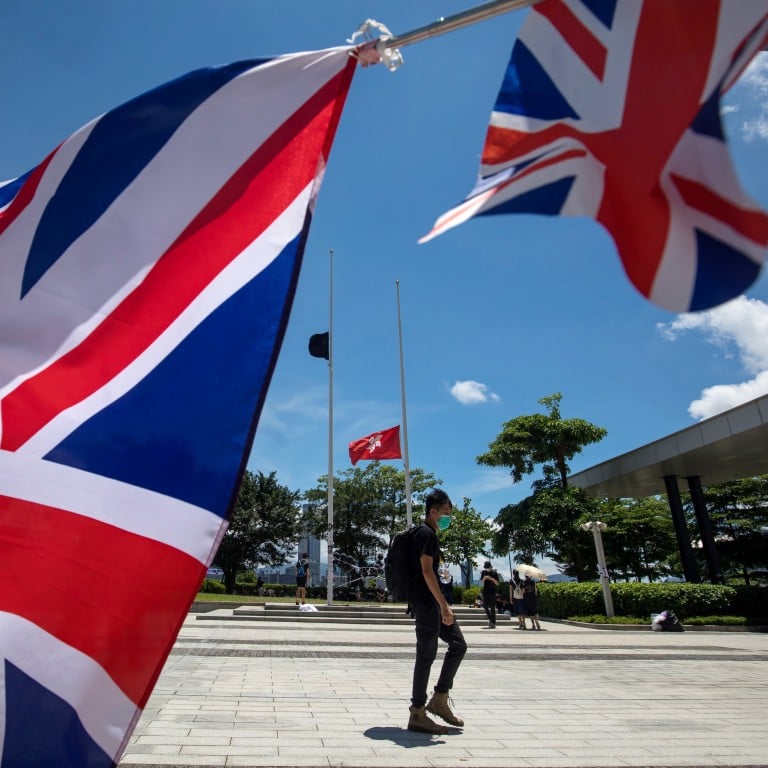Relations between Britain and China are cooling sharply in the wake of the
worst political unrest in Hong Kong for decades. While this represents a big political headache for Beijing, the challenge may be even greater for London in the context of its post-Brexit dependence on growing economic ties with fast-growing economies in Asia and beyond.
In recent days, the two candidates running to become the next British prime minister,
Jeremy Hunt and Boris Johnson, have squarely defended the demonstrators. Hunt, currently foreign secretary, called on Beijing not to use the protests against the extradition bill and Chief Executive Carrie Lam Cheng Yuet-ngor as a “pretext for repression”.
Despite this rhetoric, both men will be aware that bilateral relations went into a deep freeze in 2012 when then prime minister David Cameron
offended Beijing by meeting the Dalai Lama. It is for this reason that the Conservative governments of both Cameron and Theresa May ratcheted down human rights concerns about China, with relations entering what was called a “
golden era” after Xi Jinping’s visit to Britain in 2015.
Conservative ministers have increasingly perceived that enhancing ties with Beijing is in Britain’s interest. They figure that Xi could be in power well into the 2020s, and see an opportunity to develop a relationship that could make a significant contribution to Britain’s prosperity for a generation to come.
In this context, it is not just Labour’s leader Jeremy Corbyn, but also Washington, which has raised concerns about the degree to which London is perceived to be cosying up to Beijing, especially under the previous government of Cameron, when then finance minister George Osborne pledged to make Britain “China’s best partner in the West”.
This ruffled the feathers of the Obama administration, following Britain’s decision to become a
founder member of the Asian Infrastructure Investment Bank, which is being championed by Beijing as a potential alternative to the World Bank.
Going forward, an area of potential dispute between Britain and the US could open up around Beijing’s trillion-dollar belt and road infrastructure project. After Italy became the
first G7 nation to endorse the plan this year, much to the alarm of Donald Trump’s administration, China is now looking for other key nations to do the same, and Finance Minister Philip Hammond
attended April’s Belt and Road forum in Beijing.
As these examples underline, economics has assumed an even higher importance in bilateral relations in recent years. And in the context of Brexit, London is putting ever-greater emphasis on consolidating trade ties with non-EU nations, as underscored in recent trips to China by British ministers, including May and Hammond.
Britain already receives the largest amount of Chinese foreign direct investment of any EU country, and is one of Beijing’s top three trade partners in Europe. Meanwhile, China is Britain’s second-largest non-EU trade partner.
While economics dominates bilateral ties, security issues are a growing part of the agenda too. Beijing has sought to expand military cooperation with London, including for the first time
sending warships to London for a tour in 2017.
However, there are also tensions on security. In February, a trip by Hammond to Beijing was
cancelled after a speech by then defence secretary Gavin Williamson was perceived by Chinese officials as sabre-rattling. Williamson
asserted that London could deploy an aircraft carrier in the Pacific for its first operational cruise in 2021. This was very sensitive for Beijing, in part because it is involved in disputes with neighbouring countries over territorial claims in the South China Sea.
Meanwhile, Huawei could also be a source of tension. Despite
assurances by Trump, there is fear in London that Washington may limit intelligence sharing if London allows the Chinese firm to build part of its 5G high-speed mobile network. This future decision, key for Johnson or Hunt as the next prime minister, is yet another example of the high-stakes diplomatic balancing act for London.
Andrew Hammond is an associate at LSE IDEAS at the London School of Economics
This article appeared in the South China Morning Post print edition as: HK protests are another thorn in Sino-British ties


